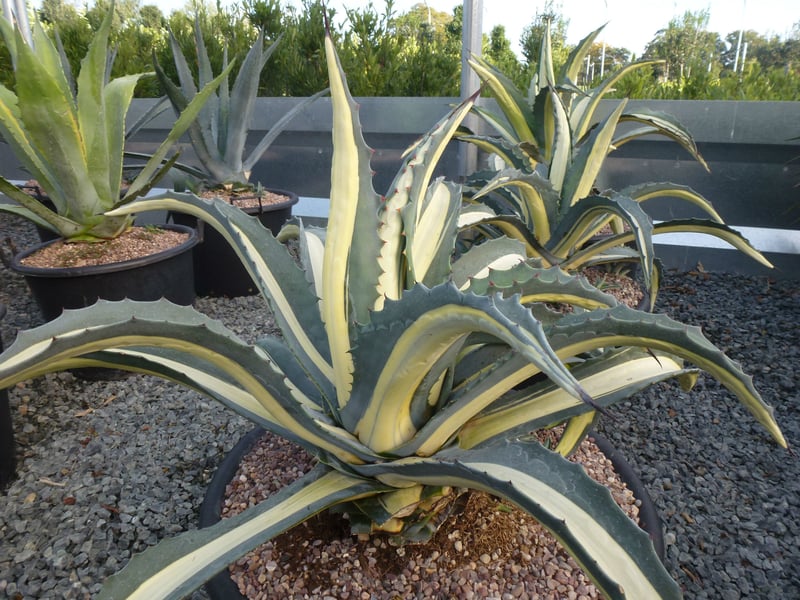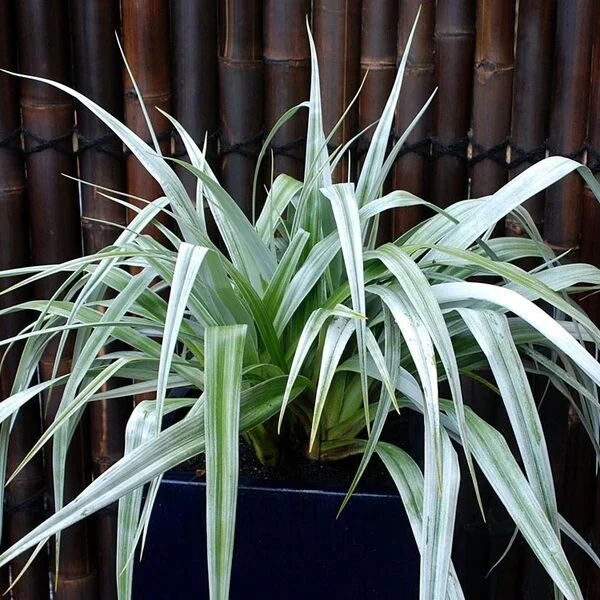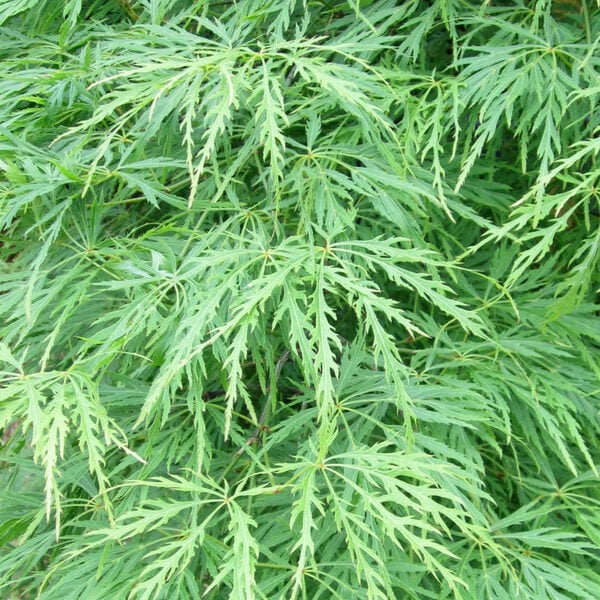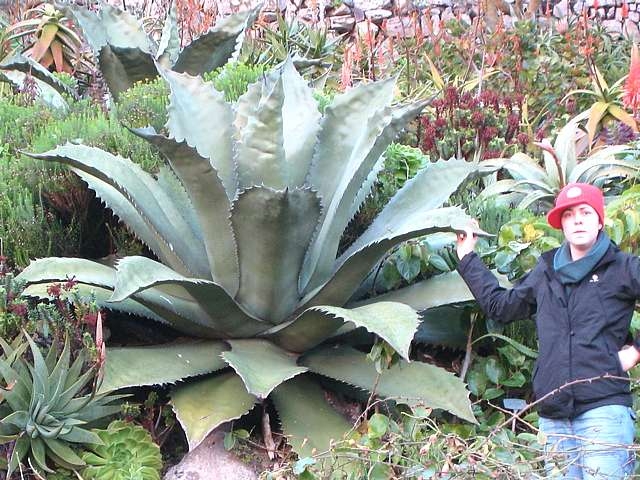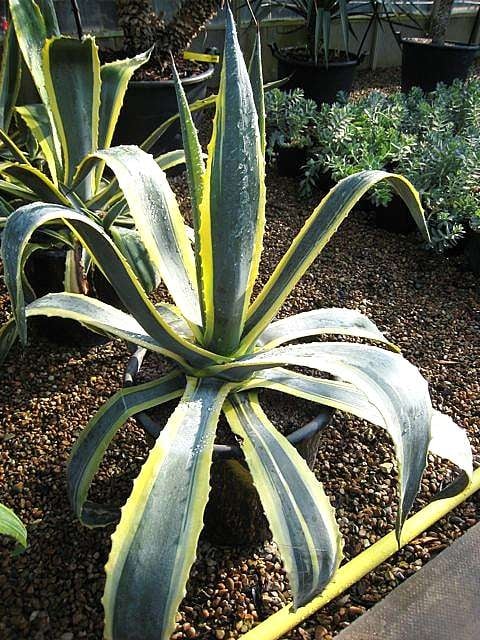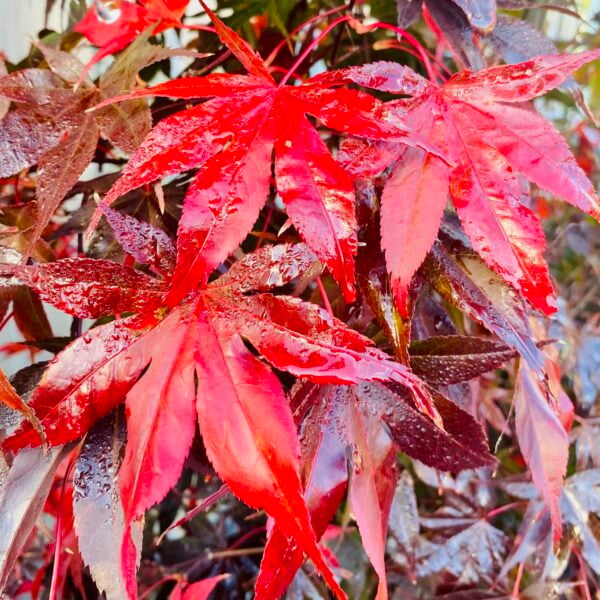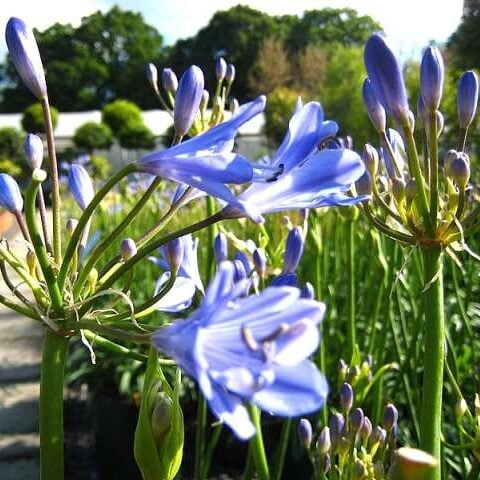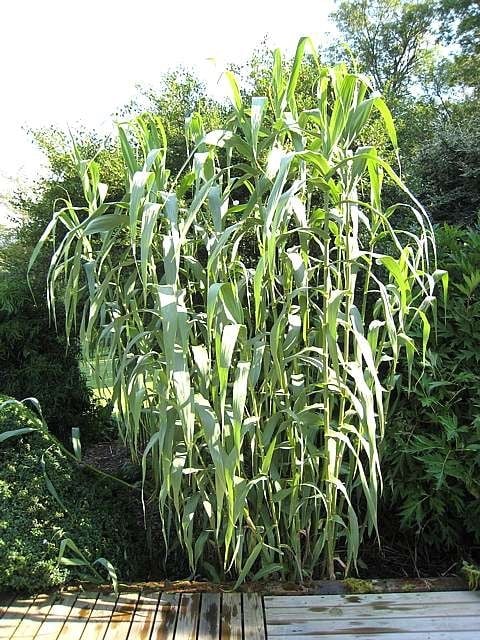Agave americana ‘Mediopicta Alba’
The one with the white stripe down the middle of each leaf. Slow growing, easy plant, grow it in a pot, bung it in a shed for the winter. Please contact us for stock availability and sizes.

Hardiness level Red
Statuesque, sculptural and about as architectural as you can get. They're now so widely spread in cultivation that no one can quite remember where they came from. Mexico or thereabouts. Anything spiky and everyone blames Mexico. Very often, with good reason - the place is full of spiky plants. Nothing makes a statement like this. A pair in pots either side of an entrance always works. They can take low temperatures (-5°c or less) but they don't like the damp so hauling them into a greenhouse, shed or garage between November and March is the best idea but if the garden is mild (centre of huge metropolis or near the seaside) they will survive in the ground. The furthest north I've ever seen these growing in the ground is the northern tip of Jutland in very sandy soil. They wrap them with sacking in the winter but it's still a surprising site in Scandinavia. One thing we know - the bigger they are the more frost hardy they are and the variegated ones - as with all variegated plants - are less robust and therefore less cold hardy than the non-variegated plants. Use a big old carving knife to remove the old leaves and also dig up the pups (baby suckers round the base). These can be potted and grown into new plants.
Many years ago we loaded some beautiful specimens on an enclosed lorry on a Friday in Italy in July. By the time they arrived in Sussex the following Tuesday, they were destroyed. The leaves appeared to have imploded and it took us a while to understand what had happened. It was the heat and humidity in the lorry. Millions of years spent evolving in various American deserts, never prepared them for humidity and this is how they reacted. This can also happen in ill ventilated greenhouses or conservatories so if the leaves on your agave ever turn white and blotchy and horrible, it's not a disease, it's because it got too hot and humid. One of their common names is The Century Plant because they flower every century which is rubbish - they'll often flower in 10 years or less. As a result of flowering, they die but they don't half go out with a flourish. A huge tree like thing with yellow flowers on it erupts in spring. On a big old plant these can grow to 25ft in as many weeks. An exhausting process which causes an inevitable departure but always leaving masses of highly viable seed (you only need to show the seed a damp towel and they'll burst into life) and lots of little pups round the base.
Additional Information |
|
|---|---|
| Soil Type | |
| Light | |
| Plant Type | |
| Continent of Origin | |
| Specialist Plants | Grown by Us, House Plants/ Indoor Plants, Mediterranean, Rare & Unusual (Collectables) |
| Features | |
| Situation | Coastal, Conservatories, Exposed (To wind and sun), Mild City Gardens, Plants for Pots, Seaside, Sheltered Garden |
| Hardiness | |





